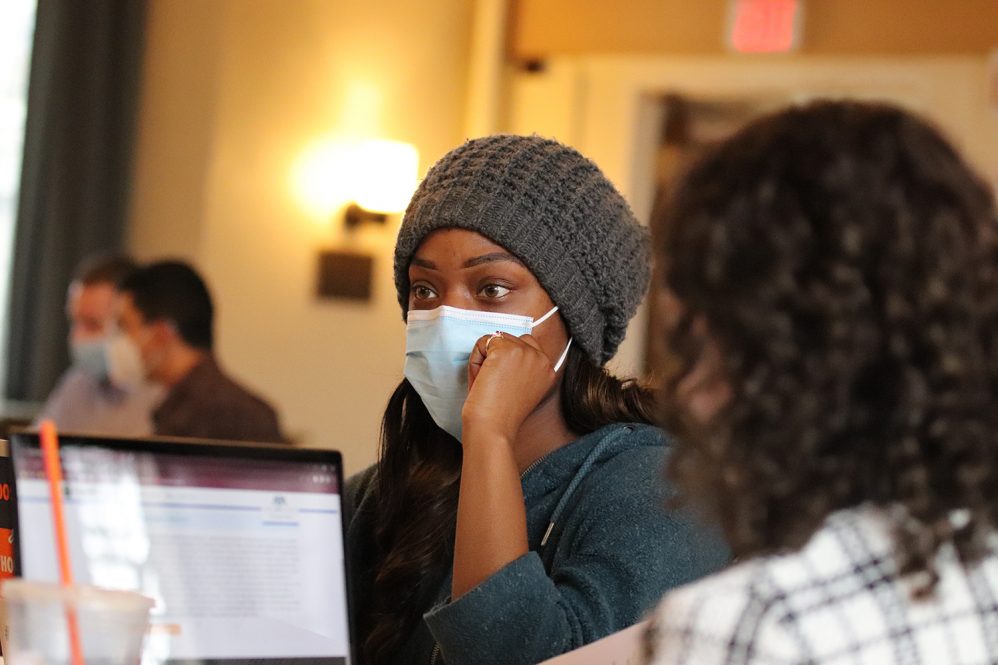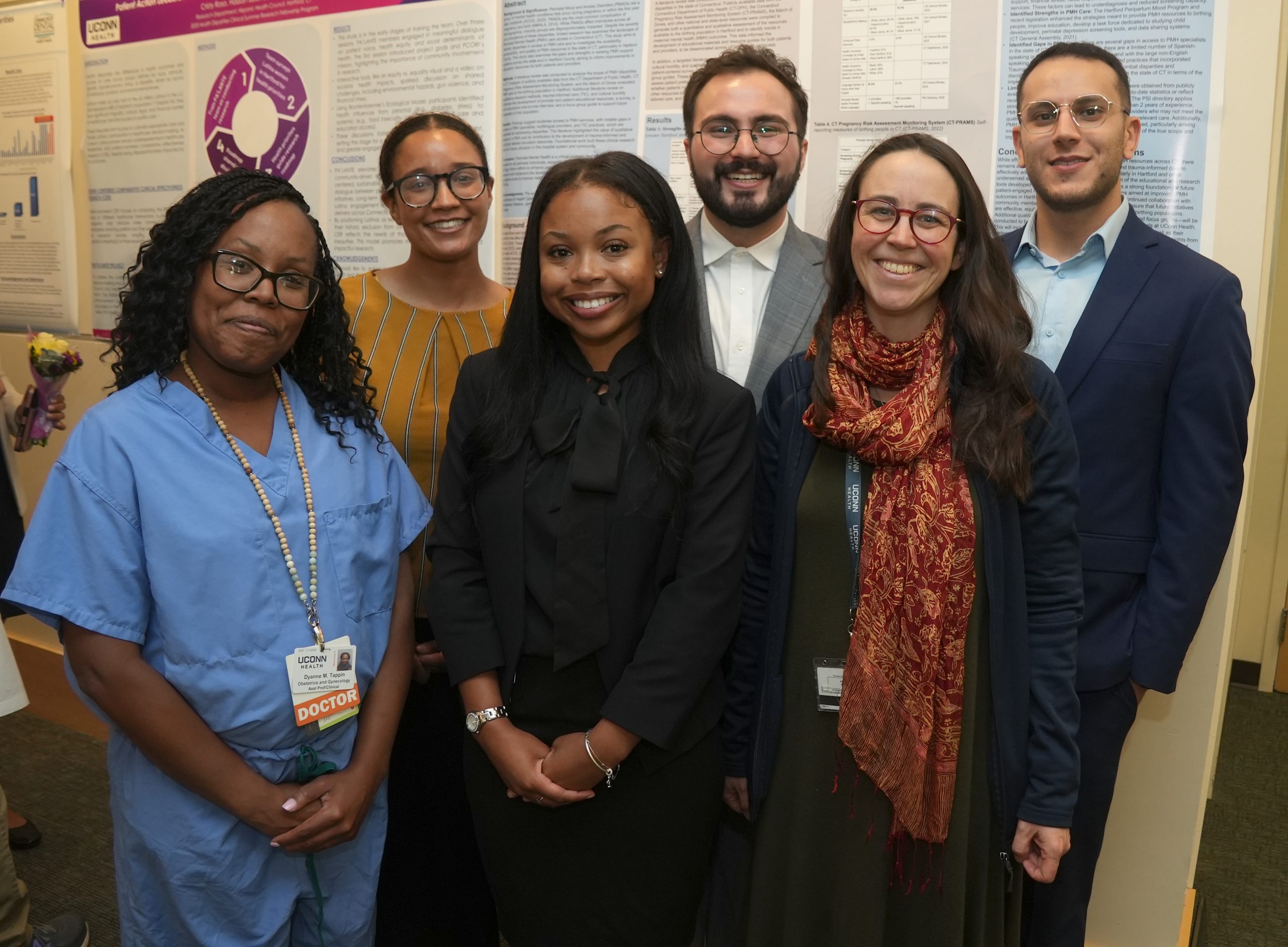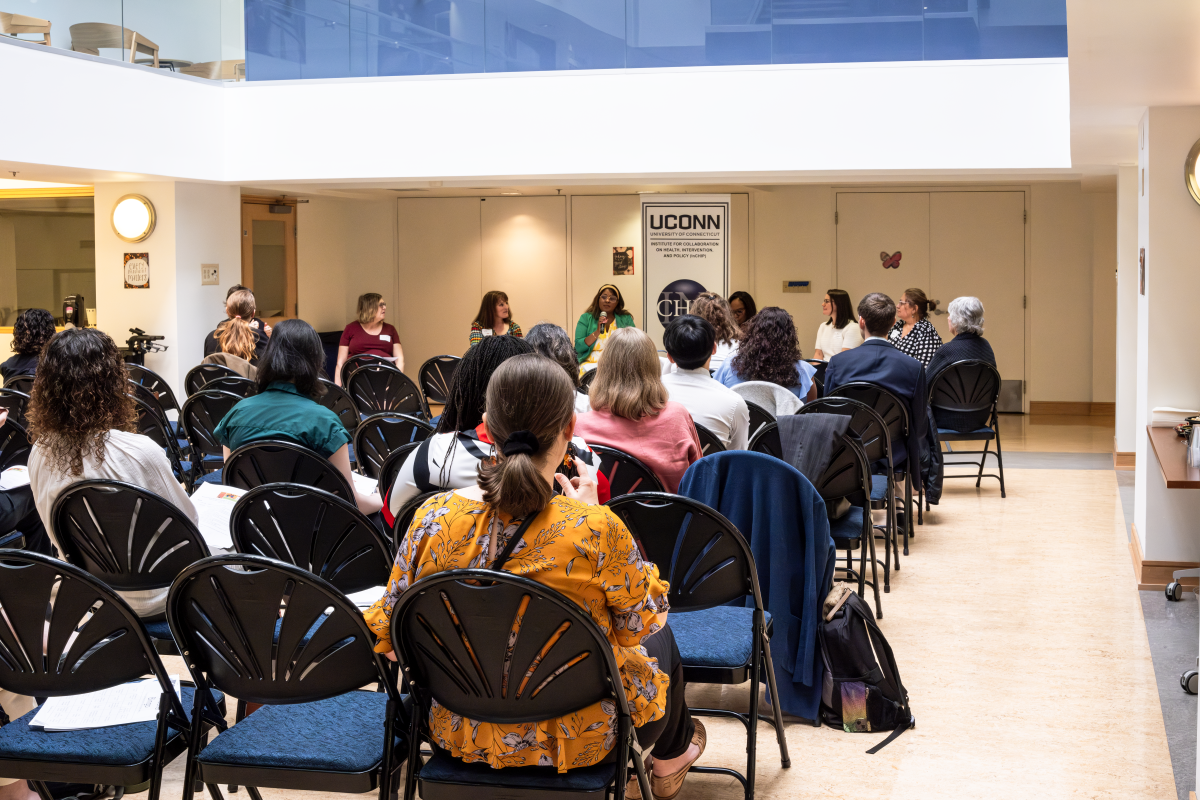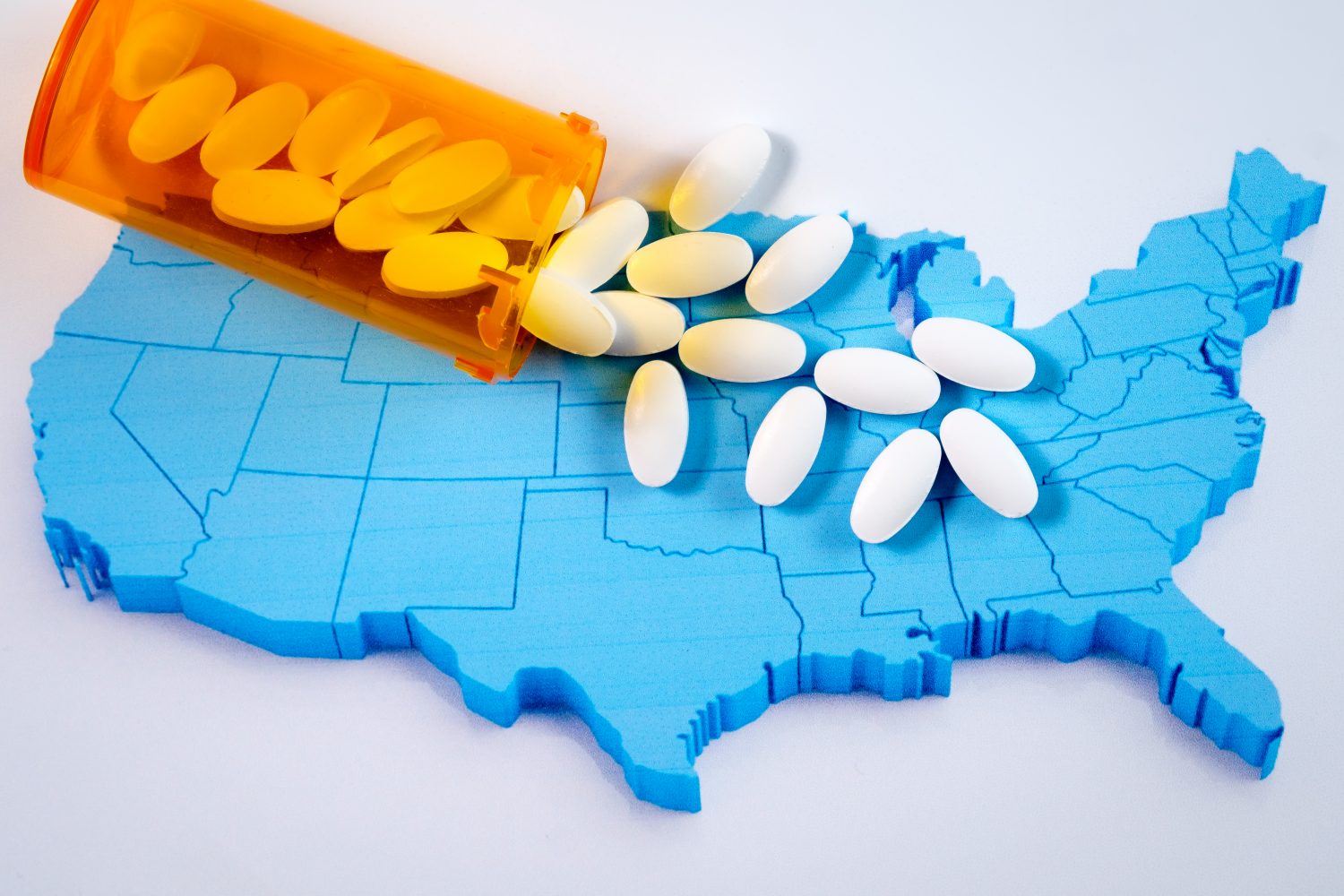Twenty UConn Law students worked with volunteer lawyers on April 1 to answer legal questions for people who qualified for free legal help.
The Connecticut Bar Association cosponsored the Connecticut Free Legal Answers program, which paired teams of students with lawyers to research and write answers to questions posed in advance by individuals on a variety of legal problems. The event was held for two hours in Janet M. Blumberg Hall.
“Not only did we get a strong turnout from students but they represented all of our classes and divisions: 1L, 2L, 3L, day and evening divisions, LLM and exchange students,” said Jennifer Mailly, the associate dean for experiential education “On top of all the other good things that happened on Friday, I am thrilled that this was a very inclusive event.”
Mailly worked with Jenn Shukla, the director of the Access to Justice Initiative at the Connecticut Bar Association, to bring the event to campus and provide a way for law students to participate in the bar association’s pro bono work. The result was an initiative that combined assistance to those in need of legal help with an opportunity for students to practice legal research and writing skills while networking with leaders of the bar in Connecticut.
“UConn Law greatly appreciates the opportunity to collaborate with the Connecticut Bar Association in our shared goal of narrowing the access to justice gap,” Dean Eboni S. Nelson said. “While providing impactful assistance to members of our state, students participating in the Free Legal Answers program were able to learn from volunteer attorneys while deepening their commitment to public service.”
“The CBA is proud of our many collaborations with the University of Connecticut School of Law, particularly in addressing the civil access to justice gap,” Connecticut Bar Association President Cecil J. Thomas said. “The civil access to justice gap in Connecticut is significant, but I am incredibly hopeful for the future when I see the enthusiasm that the future members of our profession bring to these volunteer opportunities.”
At the event, Mailly signed all 20 students up for the law school’s Pro Bono Pledge program, which recognizes students who perform 50 or more hours of pro bono or community service work before graduation. The students who volunteered at the event could count the hours toward the pledge requirement. Fifteen of the 20 students also volunteered to conduct research and written summaries to help volunteer attorneys on an ongoing basis.
Law student Renee Varga ’24 said the experience was an excellent introduction to pro bono work. “It was especially helpful as a 1L to see the practical aspects of working with these clients,” she said. “For example, the attorney I worked with was careful to use only free resources for our research, both to show that we don’t need access to Westlaw to engage in this work and because someone seeking free help will benefit most from resources available to them as well.”
According to Shukla, the event set a new Connecticut record for most questions answered in a single day, with advice provided to 19 Connecticut residents. Six questions concerned family law, five were about housing or eviction issues, two concerned civil or constitutional rights, two were about wills and four concerned other legal issues.
Shukla and Mailly said interest from students is strong and they expect to hold another session of Connecticut Free Legal Answers at the law school.



